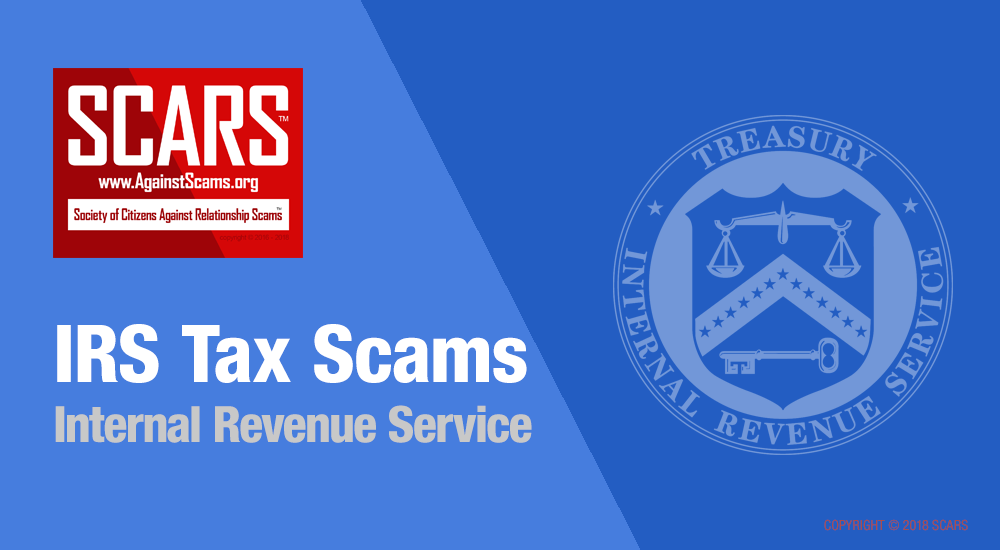
SCARS Institute’s Encyclopedia of Scams™ Published Continuously for 25 Years

After Your Scam, You Have So Much To Worry About, But Don’t Ignore Your Finances!
More Than Anything You Need To Survive This!
This is Financial Survival!
Tips for Scam Victims to Help Build an Emergency Budget – And Climb Out of Your Hole!
After the scam, money is one of your most critical resources. If you sent all or most of your life savings to a scammer, then this is a real disaster.
To begin climbing back up into the daylight, and creating an emergency fund, we offer these tips, even on a tight budget it is important!
Later on, you can begin to look at your finances in a more normal way, but for now, financial survival is on the line.
There Are Two Areas To Focus On Right Now
- Survival Budgeting/Financial Survival – get your money under extreme control now!
- Surviving the Unexpected – plan to have emergencies while your finances are in bad shape – stuff happens!
THE FIRST AREA TO FOCUS ON IS YOUR SURVIVAL BUDGETING
You have to learn where every penny is going, what you spend, on what, and why. You have to look at every possible way to take control – where to stop spending, where to spend less, and how to save something for the inevitable unexpected expenses that are sure to come up.
When (not if) something unexpected happens, can you foot the bill in your present situation?
In 2016, the United State Federal Reserve Board asked survey respondents how they would pay for a $400 emergency. The most shocking answer? A whopping 44 percent of respondents said they would have to borrow the money, sell something to cover the cost, or — here’s the kicker — they wouldn’t be able to come up with the $400. Four hundred dollars! Are you in the same boat? No matter how tight your budget is, it is possible to set some money aside.
Remember one thing – this is not about you begging or accepting charity – dial down your pride and shame – this is about you accepting the consequences for what happened and stepping up to take control back in your life!
Your Financial Survival
Learn how to budget and build an emergency fund by following these money-saving strategies:
1. ASSESS WHAT YOU ALREADY HAVE
When it comes to learning how to save money on a tight budget, you must start by assessing what you already have, and — in particular — what you don’t need.
Catalog your things – property – on paper and assign a value to each one. Identify what you consider critical to living and what you no longer really care about.
This includes physical items like appliances, any artwork or luxury items, furniture, clothing, etc.
It is often surprising how much stuff we have, and how much we have kept out of pure inertia. Everyone has something they no longer need or care about – these can be sold. It may feel shameful to consider selling your things, but if you really don’t need them, consider them as money you saved in that form for a rainy day.
Consider selling those unnecessary/unused/uncared for items in a yard sale or on an internet “marketplace,” such as eBay, Craigslist, or Facebook, for some quick cash that you can put aside or make use of. You may be very surprised how much you can actually raise in this way. But do not mourn their loss, you bought them and they served their purpose and now can serve a new purpose.
2. EVALUATE YOUR CURRENT BUDGET AND SLASH WHERE YOU CAN
Next, take a long, hard look at where your money actually goes each month.
The most important thing I to know what you spend now and what you need. You may not really even know. Knowing this gives you options to control it.
For monthly bills, try saving on your basics:
- electricity & gas
- your cell phone
- cable and internet service
- water
- insurance
- vehicle use
Try calling the utility & service companies to see if there are more economical options or plans available that you can switch to.
- For credit cards with revolving balances, ask the credit card companies if you qualify for lower interest rates.
- If a large chunk of your money goes toward eating out consider challenging yourself to eat more (all) meals at home.
- You’ll be surprised at how quickly those savings will add up.
- The same for what you buy at the market, focus on sales, BOGOs (buy one get one), and alternate brands.
3. SET YOUR GOALS AND MAKE A PLAN
After you’ve sold your unwanted items and reduced your recurring expenses, it’s time to set a savings goal.
Experts recommend having between three and nine months’ worth of expenses set aside in an emergency fund, but don’t let the thought overwhelm you.
Instead, think about setting a S.M.A.R.T. goal: one that is Specific, Measurable, Achievable, Results-focused, and Time-bound.
For example, if you want to start with that theoretical $400 emergency fund, you can make your goal to set aside $35 a week over the next 12 weeks. If you stick to your plan, you’ll actually end up ahead of the curve with $420! If that goal is too tough to achieve, consider spreading out the timeline. For instance, if you only save $10 per week for a year, you’ll end up with over $500 in your savings at year’s end!
However, there may be looming expenses on the horizon, such as taxes that seem impossible. Focus now on the possible, and we will suggest solutions to those others later in future articles.
4. SET UP SEPARATE ACCOUNTS
The money that you’re saving up won’t be very useful in an emergency down the road if you spend it as soon as you get it, so consider treating your emergency fund differently.
Rather than having cash in a drawer in your bedroom or your extra money deposited into your regular checking account that you use on a daily basis and too easy to access, put it in its own separate savings account – make it separate and a little more difficult to access. That way, it will be out of sight, but you’ll have access to it when you truly need it.
If you also think of your emergency fund as a bill that you have to pay each month, you’ll see the amount grow in no time. The best part? If it’s in a savings account, it will accrue some interest while it sits — making even more emergency fund money that you didn’t have to work for!
Do not try to invest any money you are accumulating for your emergency. Do not put it at risk. Right now you need a cash reserve, investments can come much later.
5. STICK TO YOUR BUDGET
This step will require a bit of self-discipline, planning, and pacing.
Many people make the mistake of keeping track of the income and expenses in their heads or on random sheets of paper, but the best way to stick to a budget is to have it documented where it can be consistently referenced – like a spreadsheet on your computer or in a dedicated notebook for your financial planning.
Your bank may have a phone app to access your account, but your bank statement is not for managing your money. There are some good phone apps that can help you with this, such as MINT from Intuit (a very reliable company and FREE) https://mint.intuit.com
TIP: Another easy way to help maintain and stick with your budget is through couponing and bargain shopping.
TIP: Penalize yourself if you do not save. If you do not save what you plan or do not meet your budget, charge yourself a penalty. Decide upfront what that penalty will be and what it will apply to. This will help you stay on track, and also record when you go over the line so you can look back at how many times your budget was not enough, so you can adapt.
Bonus Tip: Pay to Save – If you are a homeowner.
What’s one of the biggest blows to a homeowner’s finances? A large appliance breakdown. And what’s almost inevitably going to happen in a home at some point? A large appliance breakdown!
Although it may seem counterintuitive at first, since you’ll be paying a monthly or yearly amount for the coverage, a home warranty can truly protect your budget when it comes to those breakdowns. Consider paying a little now to save big in the future when those breakdowns happen. The same applies to car owners with extended warranties – but be careful since there are so many scams on this.
6. IDENTIFY FINANCIAL SUPPORT – SOURCES OF FUNDS
After the scam, your financial life may be in total chaos, however, it is important to identify your available resources.
These might include:
- bank accounts
- savings
- loan & borrowing options (just in case)
- credit cards – transferring balances or still available credit
- fungible assets, such as stocks and bonds, property
- your home – such as refinancing
- family and friends that can loan you money
We do not recommend that you go into debt any deeper but identifying resources that you can turn to can both make you feel better and better plan for any eventualities.
7. QUICK INCOME
You may need to take on extra employment or gigs to weave your way through your problems. Fortunately, there are a massive number of choices, but be careful since this is an area full of scams too.
Options to consider:
- Gig work – look into FIVERR as a source for task or project-based work. It is a real site and moderately safe. https://www.fiverr.com/
- UpShift gig work – https://www.upshift.work/
- Make things – ETSY.com is a great place to sell this you know how to make. https://www.etsy.com/
- UBER & LYFT – become an Uber driver – your hours & schedule. You can do it when you have time, and you can make real money!
- Doordash – food delivery services are also great. You can pick up and deliver from restaurants, or act as a grocery buyer – most modern supermarkets have delivery services and in many countries, you can do that – do the shopping and then deliver.
- Doordash & UberEats are food delivery services. https://www.doordash.com/dasher/signup/ and https://www.uber.com/us/en/s/c/deliver-kochab/
- Instacart is a shopping and delivery service for local supermarkets. https://shoppers.instacart.com/
While most of these are for the U.S. there are similar services throughout Europe, Latin America, and Asia. Check with your local restaurants and markets to see what delivery services they use.
8. RETURNING TO FULL-TIME WORK
There are many job websites that will help you get yourself organized and help you find a job regardless of your age.
Here are a few:
- https://www.jobs2careers.com/?q=work%20from%20home
- https://www.indeed.com
Here are useful guides for those that need to work after retirement:
- https://www.retireguide.com/guides/working-after-retirement/
- https://www.indeed.com/career-advice/finding-a-job/going-back-to-work-after-retirement
- https://money.usnews.com/money/retirement/second-careers/slideshows/15-in-demand-jobs-for-seniors
Also, many of your past employers may actually want you to come back! Seniors are more reliable, more ethical, and come with previous training – a significant advantage over younger career-hopping employees – and often these can provide benefits – read more here: https://www.benefitnews.com/news/retirees-are-returning-to-work-post-pandemic
How to Get Your Finances in Order
Follow these tips to help you stick to a budget, find energy savings at home, and lower your bills.
Sticking to a budget can be challenging for a lot of victims, they are dealing with the emotional catastrophe of the scam and now must find the energy to handle their finances. Unfortunately, it just must be done if you are going to survive financially.
Here are some easy tips to help you save money throughout your recovery and beyond:
- The early bird catches the savings. Start each day by doing something that could lead to big savings over time. Say no to spending $4 or more a day at the coffee shop and brew your own cup at home. (This could potentially save you $20 a week, which translates to almost $1,000 a year.) Or, instead of grabbing a fast-food breakfast every morning, eat before you leave the house and you’ll likely save even more and be healthier, too.
- Perform an energy assessment or energy audit on your home. Seal air leaks around doors and windows to save on heating and air conditioning costs, and check your attic insulation to see if it needs to be beefed up. Perform annual maintenance on your HVAC systems to ensure that they are running at peak efficiency and be sure to change the filters regularly. Plus doing small tasks in your home can be therapeutic for you. By the way, many times your utility company will do the assessment for you for free – ask them.
- Turn down your water heater temperature to 120 degrees Fahrenheit. According to www.Energystar.gov, heating water is the second-largest energy user in your home. Adjusting the temperature can help you save money on water bills and help prevent scalding accidents.
- Reduce your water bill. Fix leaks promptly, install water-efficient showerheads and high-efficiency toilets, and run dishwashers and clothes washers only when they have full loads. You can also take steps to conserve water outdoors on lawns and gardens by watering only when needed and using soaker hoses. Of course, some of these things cost money, but many are not very much – an improved showerhead that can save 50% on water can cost as little as $10.00
- Organize your pantry. That’s right; orderly food storage can help you save money. When you can easily see what you have on hand, you’ll be less likely to buy unneeded or duplicate items at the grocery store. And, by placing older items in the front of shelves, you’ll be less likely to waste expired foods. If you have inexpensive staples on hand and in plain sight, such as rice, beans, pasta, and grains, you’ll be more likely to plan menus around them. Against, seeing your supplies can be anxiety-reducing and the sense of accomplishment that comes with small tasks is very satisfying
- Recycle and reuse. In addition to being good for the environment, recycling can also be good for your wallet. Use a lunch box or insulated bag instead of paper sacks, rinse out and reuse plastic containers and jars for food storage, use cloth towels instead of paper towels for clean up, and use refillable water bottles instead of disposable plastic ones. You can also save money by using cloth napkins instead of paper ones.
- Reduce the number of cleaning products that you purchase. Instead of having special cleaners for every area of your home, try buying more generalized products you can use everywhere or some thrifty homemade cleaning solutions. Many DIY cleaning recipes have the added bonus of using natural ingredients. Be careful mixing any ingredients. Try instead:
-
- Boiling water & steam is a great cleaner – have a teapot? Then you can produce scalding water!
- Vinegar works on windows and countertops!
- Mineral Spirits (White Spirits) is also a great all purpose degreaser cleaner
- Plain old water and light detergent works amazingly
- Chlorine can help in any place you need to disinfect and sanitize
These alone can save $100 over branded cleaners with each purchase!
Ask for lower bills. Contact your cable television, internet, and telephone service providers and find out if you are getting the best available rates. Especially if you’ve been a long-time customer, you may be eligible for special promotions, loyalty programs, or newly structured rate deals. Another trick is to suggest that you are going to cancel your service – they have customer retention programs that can give you credits and reduced pricing.
Make saving money a family affair. Call a family meeting and ask for savings suggestions from each member of your household. Start an entertainment or vacation fund with the savings to encourage everyone to participate throughout the year. This will also help you re-establish trust after a scam.
Obviously, these are generalized suggestions and we do not know your specific situation. You might be advised to contact a licensed financial professional to discuss your situation too. Always research every option before implementing any strategy.
Please give us your feedback, and suggest other ideas too!
What is or has worked for you? We would love to know!
More Resources
- Next Steps – Protect Your Financial Identity
- Online Banking Safety For Scam Victims – An Overview
- Reclaiming Financial Control After A Scam
- You Gave The Scammer Your Information?
- Giving Out Your Banking Information – Scam Warning
Managing Scam Debt:
- Scam Victims Debt Part 1 – Recognize It, Confront It, Control It, Survive It!
- Scam Victims Debt Part 2: Debt Collection Scams & Managing Real Collections
- Scam Victims Debt Part 3 – Collections & Your Rights
- Scam Victim Debt Part 4: IRS/Tax Debt
- Does Being A Scam Victim Affect Your Credit Score?
Financial Assistance:
- Urgent Financial Assistance For Scam Victims
- Financial Assistance & Crime Victim Compensation – A SCARS™ Guide
- Crime Victim Compensation Information – USA, UK, Canada
- U.K. Victims Compensation
All Articles
-/ 30 /-
What do you think about this?
Please share your thoughts in a comment below!
Table of Contents
- A Guide for recent Scam Victims on managing their finances after a scam
- After Your Scam, You Have So Much To Worry About, But Don’t Ignore Your Finances!
- More Than Anything You Need To Survive This!
- There Are Two Areas To Focus On Right Now
- THE FIRST AREA TO FOCUS ON IS YOUR SURVIVAL BUDGETING
- Your Financial Survival
- How to Get Your Finances in Order
- More Resources
LEAVE A COMMENT?
Thank you for your comment. You may receive an email to follow up. We never share your data with marketers.
Recent Comments
On Other Articles
- on Finally Tax Relief for American Scam Victims is on the Horizon – 2026: “I just did my taxes for 2025 my tax account said so far for romances scam we cd not take…” Feb 25, 19:50
- on Reporting Scams & Interacting With The Police – A Scam Victim’s Checklist [VIDEO]: “Yes, this is a scam. For your own sanity, just block them completely.” Feb 25, 15:37
- on Danielle Delaunay/Danielle Genevieve – Stolen Identity/Stolen Photos – Impersonation Victim UPDATED 2024: “She goes by the name of Sanrda John now” Feb 25, 10:26
- on Reporting Scams & Interacting With The Police – A Scam Victim’s Checklist [VIDEO]: “So far I have not been scam out of any money because I was aware not to give the money…” Feb 25, 07:46
- on Love Bombing And How Romance Scam Victims Are Forced To Feel: “I was love bombed to the point that I would do just about anything for the scammer(s). I was told…” Feb 11, 14:24
- on Dani Daniels (Kira Lee Orsag): Another Scammer’s Favorite: “You provide a valuable service! I wish more people knew about it!” Feb 10, 15:05
- on Danielle Delaunay/Danielle Genevieve – Stolen Identity/Stolen Photos – Impersonation Victim UPDATED 2024: “We highly recommend that you simply turn away form the scam and scammers, and focus on the development of a…” Feb 4, 19:47
- on The Art Of Deception: The Fundamental Principals Of Successful Deceptions – 2024: “I experienced many of the deceptive tactics that romance scammers use. I was told various stories of hardship and why…” Feb 4, 15:27
- on Danielle Delaunay/Danielle Genevieve – Stolen Identity/Stolen Photos – Impersonation Victim UPDATED 2024: “Yes, I’m in that exact situation also. “Danielle” has seriously scammed me for 3 years now. “She” (he) doesn’t know…” Feb 4, 14:58
- on An Essay on Justice and Money Recovery – 2026: “you are so right I accidentally clicked on online justice I signed an agreement for 12k upfront but cd only…” Feb 3, 08:16
ARTICLE META
Important Information for New Scam Victims
- Please visit www.ScamVictimsSupport.org – a SCARS Website for New Scam Victims & Sextortion Victims
- Enroll in FREE SCARS Scam Survivor’s School now at www.SCARSeducation.org
- Please visit www.ScamPsychology.org – to more fully understand the psychological concepts involved in scams and scam victim recovery
If you are looking for local trauma counselors please visit counseling.AgainstScams.org or join SCARS for our counseling/therapy benefit: membership.AgainstScams.org
If you need to speak with someone now, you can dial 988 or find phone numbers for crisis hotlines all around the world here: www.opencounseling.com/suicide-hotlines
A Note About Labeling!
We often use the term ‘scam victim’ in our articles, but this is a convenience to help those searching for information in search engines like Google. It is just a convenience and has no deeper meaning. If you have come through such an experience, YOU are a Survivor! It was not your fault. You are not alone! Axios!
A Question of Trust
At the SCARS Institute, we invite you to do your own research on the topics we speak about and publish, Our team investigates the subject being discussed, especially when it comes to understanding the scam victims-survivors experience. You can do Google searches but in many cases, you will have to wade through scientific papers and studies. However, remember that biases and perspectives matter and influence the outcome. Regardless, we encourage you to explore these topics as thoroughly as you can for your own awareness.
Statement About Victim Blaming
SCARS Institute articles examine different aspects of the scam victim experience, as well as those who may have been secondary victims. This work focuses on understanding victimization through the science of victimology, including common psychological and behavioral responses. The purpose is to help victims and survivors understand why these crimes occurred, reduce shame and self-blame, strengthen recovery programs and victim opportunities, and lower the risk of future victimization.
At times, these discussions may sound uncomfortable, overwhelming, or may be mistaken for blame. They are not. Scam victims are never blamed. Our goal is to explain the mechanisms of deception and the human responses that scammers exploit, and the processes that occur after the scam ends, so victims can better understand what happened to them and why it felt convincing at the time, and what the path looks like going forward.
Articles that address the psychology, neurology, physiology, and other characteristics of scams and the victim experience recognize that all people share cognitive and emotional traits that can be manipulated under the right conditions. These characteristics are not flaws. They are normal human functions that criminals deliberately exploit. Victims typically have little awareness of these mechanisms while a scam is unfolding and a very limited ability to control them. Awareness often comes only after the harm has occurred.
By explaining these processes, these articles help victims make sense of their experiences, understand common post-scam reactions, and identify ways to protect themselves moving forward. This knowledge supports recovery by replacing confusion and self-blame with clarity, context, and self-compassion.
Additional educational material on these topics is available at ScamPsychology.org – ScamsNOW.com and other SCARS Institute websites.
Psychology Disclaimer:
All articles about psychology and the human brain on this website are for information & education only
The information provided in this article is intended for educational and self-help purposes only and should not be construed as a substitute for professional therapy or counseling.
While any self-help techniques outlined herein may be beneficial for scam victims seeking to recover from their experience and move towards recovery, it is important to consult with a qualified mental health professional before initiating any course of action. Each individual’s experience and needs are unique, and what works for one person may not be suitable for another.
Additionally, any approach may not be appropriate for individuals with certain pre-existing mental health conditions or trauma histories. It is advisable to seek guidance from a licensed therapist or counselor who can provide personalized support, guidance, and treatment tailored to your specific needs.
If you are experiencing significant distress or emotional difficulties related to a scam or other traumatic event, please consult your doctor or mental health provider for appropriate care and support.
Also read our SCARS Institute Statement about Professional Care for Scam Victims – click here to go to our ScamsNOW.com website.
















This is a great article with useful information. All of the suggestions work and are worth the time and effort. Plus there is the additional bonus that by searching for sellables in our home and closets and working an extra gig or setting up your budget – you are keeping your hands busy. This is so important after the crime as we all spent too much time on our phones with the criminals. The suggested activities will help fill that space and occupy the mind. Additionally the activity from the suggestions will make us feel useful in a time where it is so easy to give in to anxiety or panic. The extra work will provide the added benefit of sleep as well. The crime left us with the aftermath of destroyed finances. Anxiety and worry can interrupt sleep.